As you approach the Mississippi River in western Tennessee, rough terrain breaks into low-lying agrarian valleys that mark much of the waterway’s basin. Although agriculture remains a mainstay of the region’s economy, poor farming practices coupled with nutrient-intensive crops, like cotton and tobacco, have degraded its soil quality and ecological diversity. Lone Oaks Farm, a summer camp and STEM-focused educational center for K-12 students and teachers in the small town of Middleton, responds to those conditions with restorative landscaping and an assemblage of durable yet elegant cabins and education buildings.
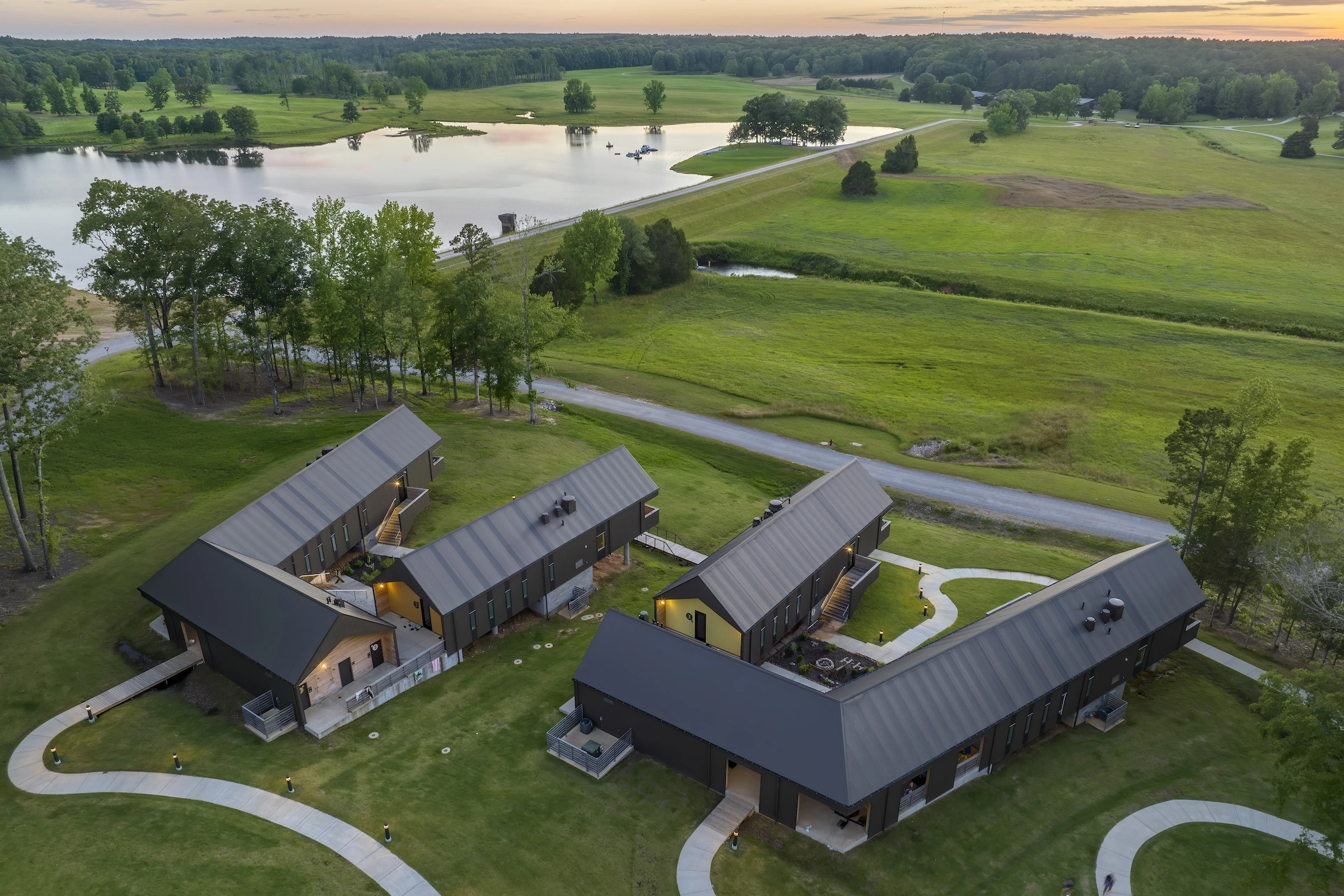
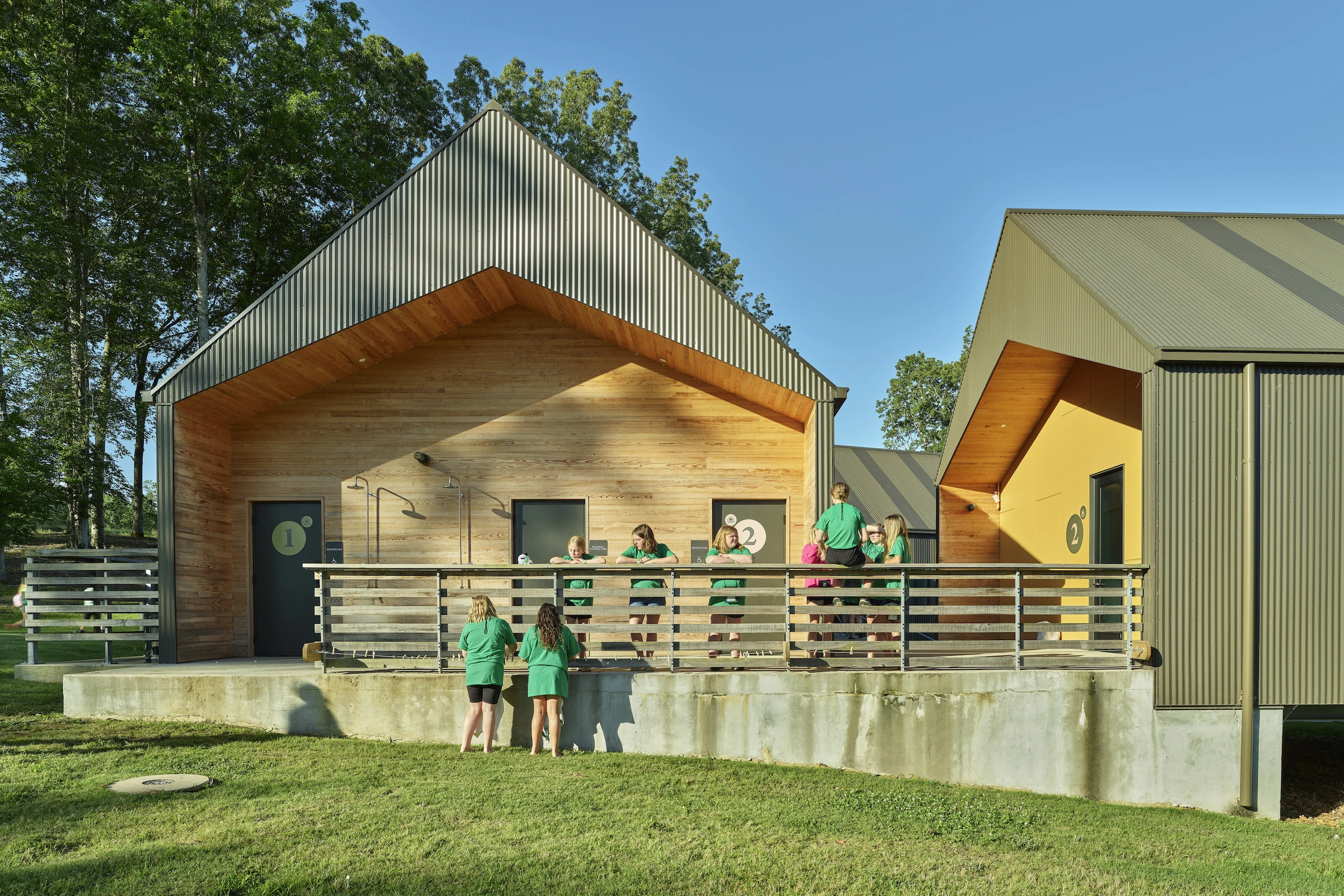
The Sunset Cabins consist of two clusters; Lone Oaks plans to build an additional set in the coming years. Photo © Tim Hursley
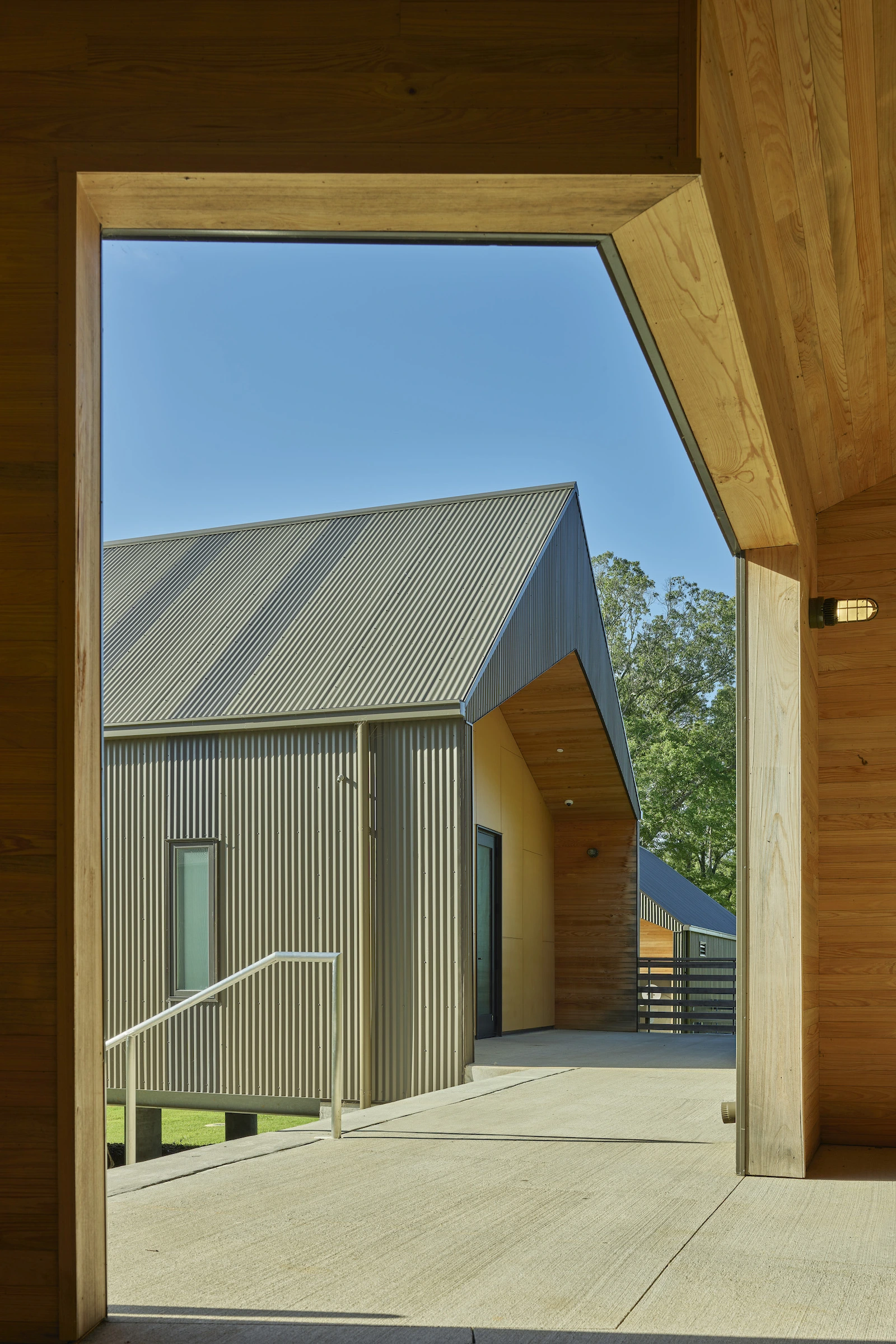
The cabins are positioned to take advantage of natural breezeways. Photo © Tim Hursley
Designed by Kansas City, Missouri–based architecture firm El Dorado and operated by the University of Tennessee’s Institute of Agriculture (UTIA), the STEM Center was completed in 2023 and Sunset Cabins, the first cluster of overnight lodgings, welcomed campers this year. The compound, which also functions as a working farm and hosts 4-H camps, encompass some 1,200 acres pieced together by local conservationists Kathy and Scott Ledbetter in 1998. In 2015, UTIA identified the property as a suitable site for a new summer camp to replace one nearby that shuttered in 2009. Two years later, in 2017, the university purchased the property and commissioned a master plan for the site—conceived by El Dorado and Nelson Byrd Woltz Landscape Architects—that includes a roadmap for sustainably restoring its ecosystem, in part, by reintroducing meadowlands and native plant species.
The STEM Center and Sunset Cabins, with their composite buildings, each measure just over 10,000 square feet, and El Dorado’s intervention places great emphasis on simplicity of design and materials as well as site positioning. “Focusing on a building that can be both built and maintained locally not only reduces downtime logistically, but also involves local vendors in the ongoing success of the campus,” notes El Dorado project architect Brock Traffas.
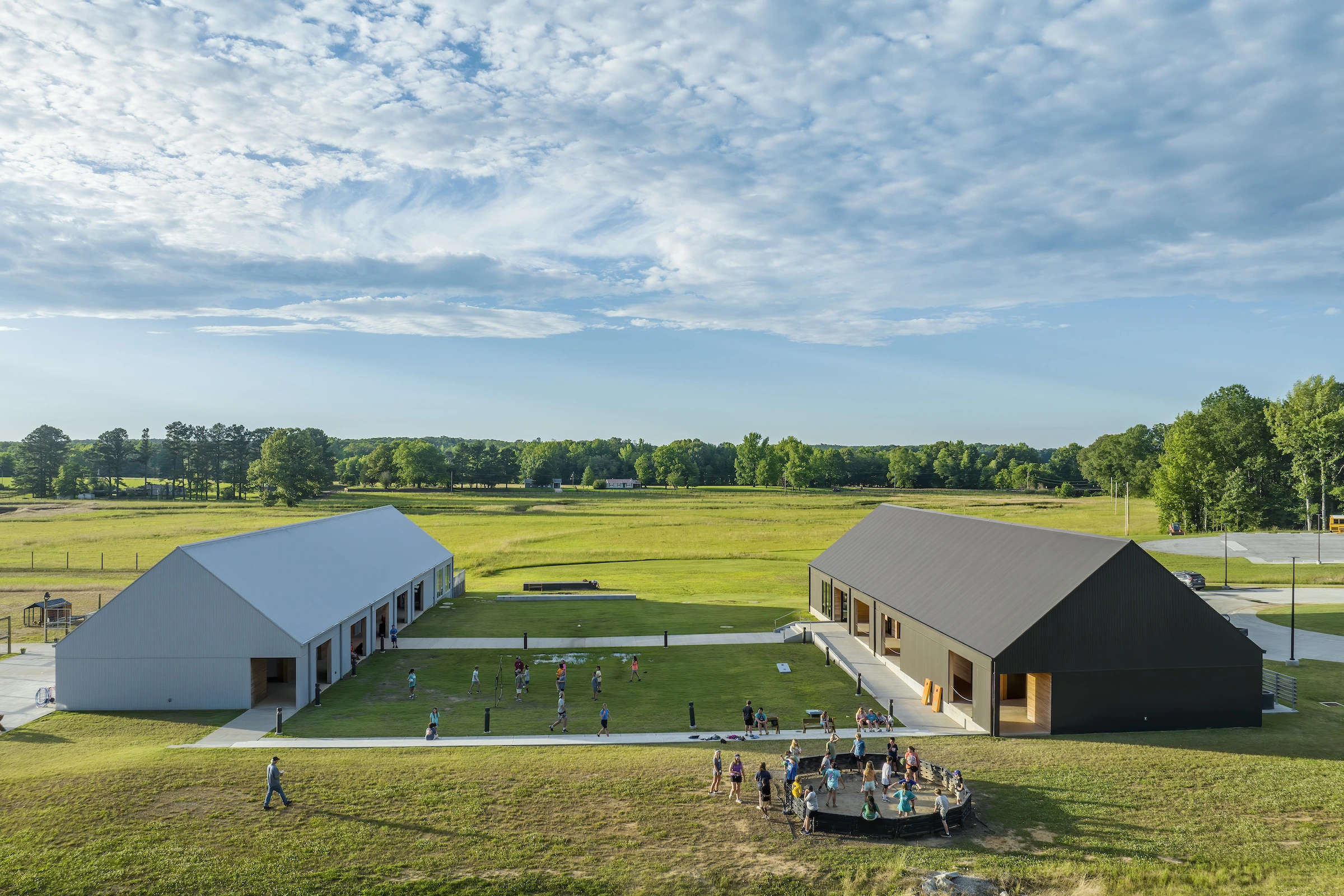
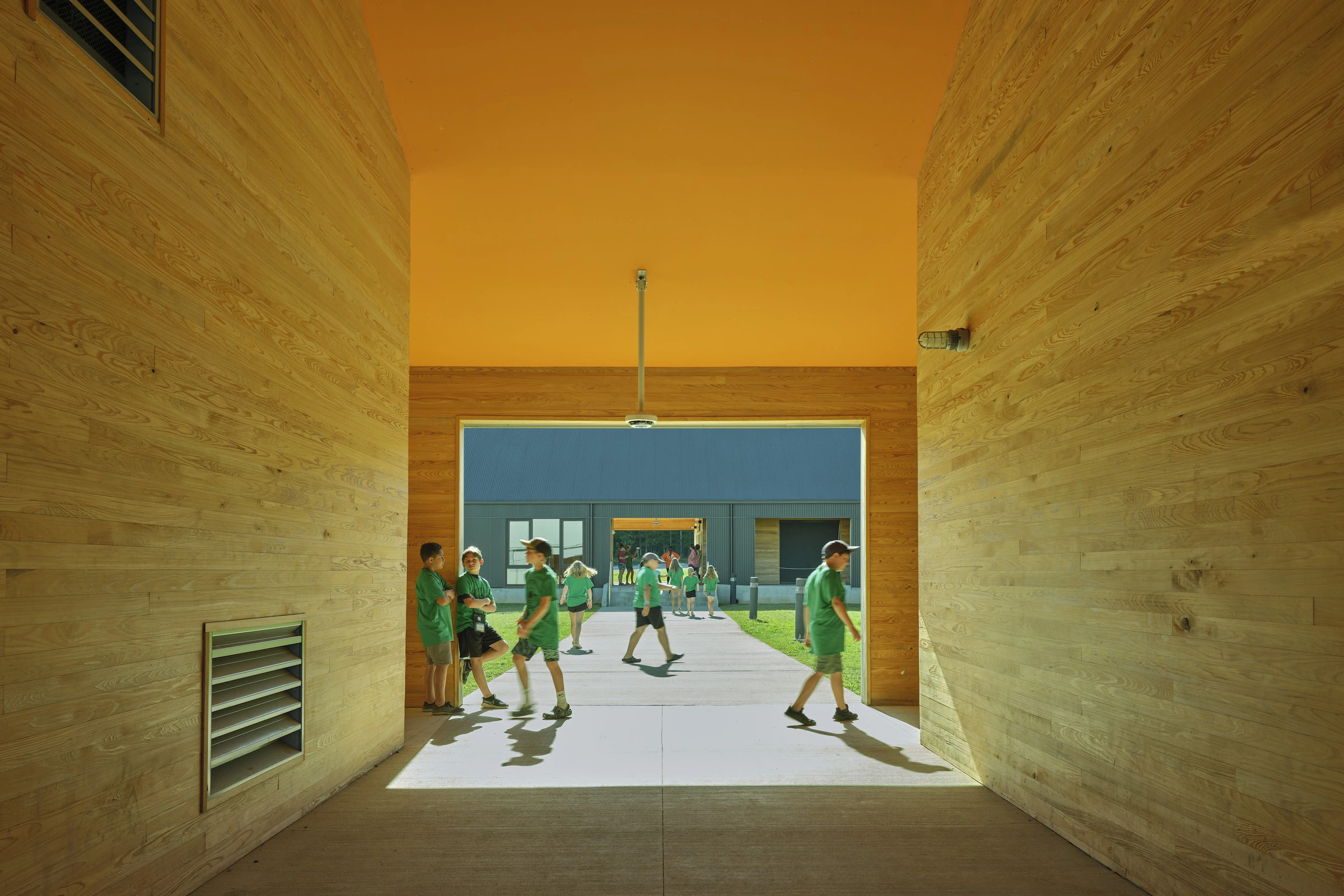
The STEM Center takes form as two parallel structures with expansive arcades. Photo © Tim Hursley
The STEM Center is composed of two barn-like structures that run parallel to each other, while the Sunset Cabins consist of six volumes divided into two separate clusters with each bunkhouse accommodating 16 campers and two counselors. The structural systems are straightforward timber-frame construction topped with scissor trusses, providing ample room for both a vaulted ceiling and mechanical space within the attic, and insulation within the wall cavity. Both are clad with corrugated steel panels fastened to the wall assembly, which are durable and can be provided by a multitude of manufacturers. The interiors are predominantly clad in locally sourced tongue-and-groove cypress, treated with a clear acrylic sealant, and particular areas are painted brightly to aid with wayfinding. Wide openings cut through both the cabins and the learning center can be used as either porches or arcades, a move that facilitates natural ventilation throughout and ease of access to the outdoors.
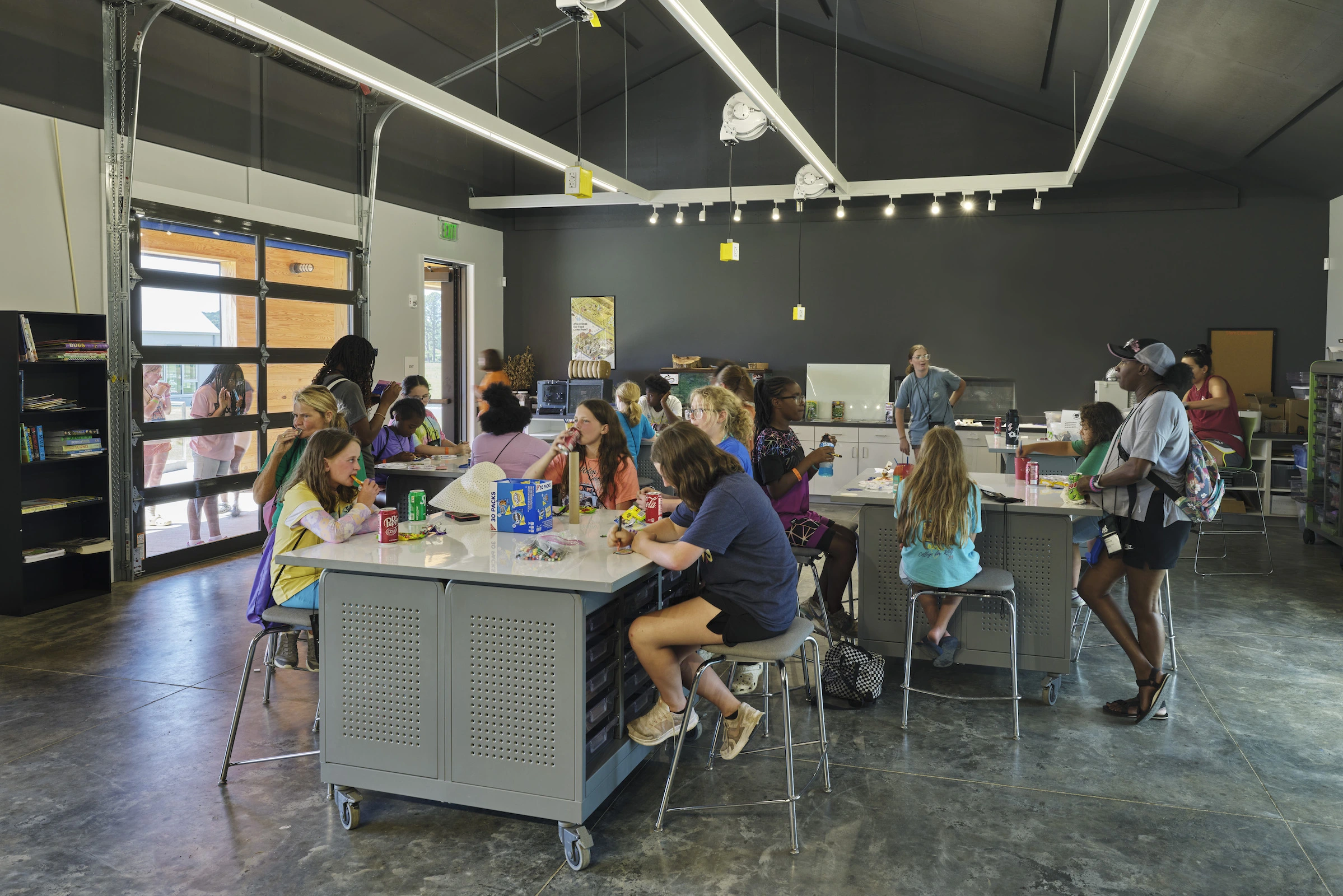
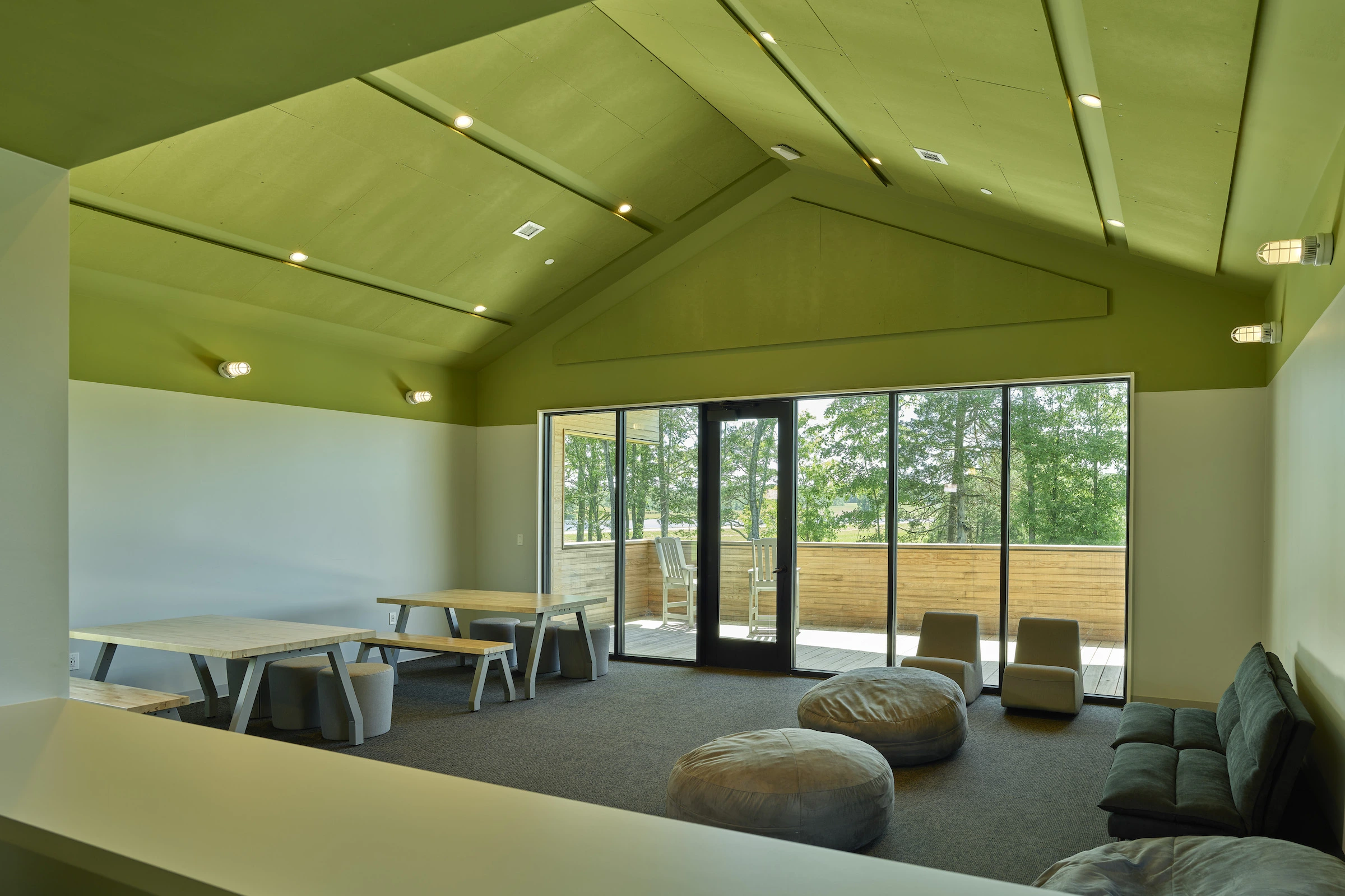
The interiors of both the STEM Center and Sunset Cabins are bright and airy.Photo © Tim Hursley
The two projects follow the Hunter Education Station (2021), also designed by El Dorado, on the Lone Oaks campus. In the coming years, the firm is expected to break ground on an additional cluster of cabins, as well as a water education and training center for the West Tennessee River Basin Authority, designed in collaboration with New York–based engineer and landscape architect Kimley Horn and local architect TLM Associates.
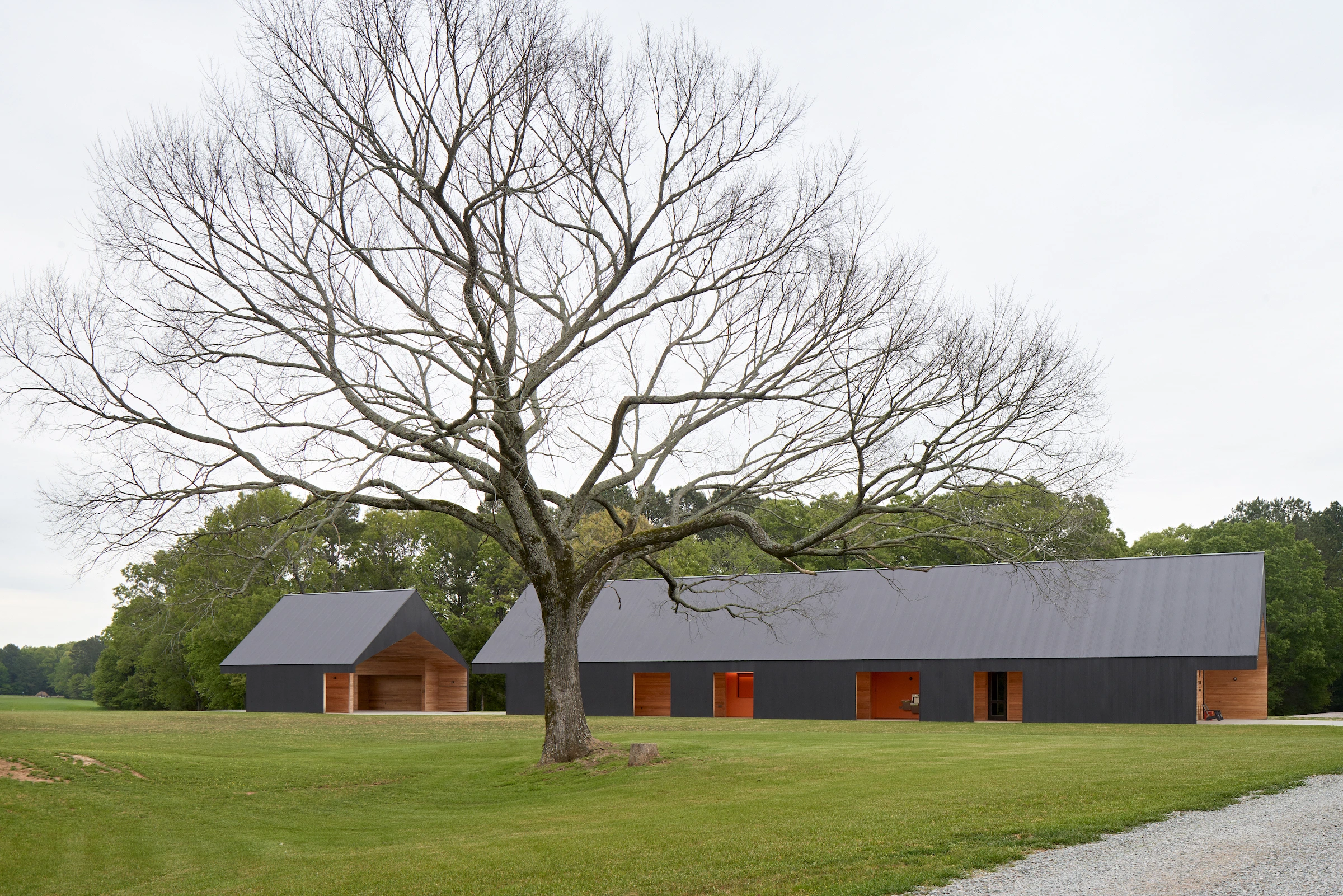
The first structure on campus, the Hunter Education Station, has a similar form and material palette. Photo © Tim Hursley
“We’re really proud of our work here in Hardeman County, one of the poorest in Tennessee, as it helps bring kids into an outdoors educational curriculum that they would otherwise not be exposed to,” says El Dorado partner David Dowell. “Our architecture here is actually helping to make a difference.”








